Filter by
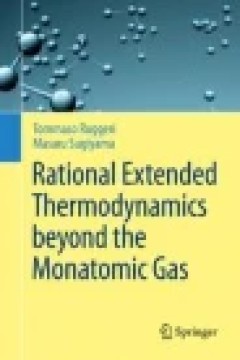
Rational Extended Thermodynamics beyond the Monatomic Gas
This book is dedicated to the recent developments in RET with the aim to explore polyatomic gas, dense gas and mixture of gases in non-equilibrium. In particular we present the theory of dense gases with 14 fields, which reduces to the Navier-Stokes Fourier classical theory in the parabolic limit. Molecular RET with an arbitrary number of field-variables for polyatomic gases is also discussed a…
- Edition
- -
- ISBN/ISSN
- 978-3-319-13341-6
- Collation
- -
- Series Title
- -
- Call Number
- 510
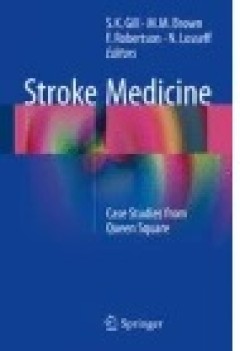
Stroke Medicine
This collection of case studies is authored by a group of internationally recognised experts in the field of cerebrovascular disease. The cases are carefully selected to provide an insight into the different kinds of stroke syndromes from the common through to more rare presentations of cerebrovascular pathology. Each case is worked through with a discussion on presentation, clinical features, …
- Edition
- -
- ISBN/ISSN
- 978-1-4471-6705-1
- Collation
- -
- Series Title
- -
- Call Number
- -

Stripes by Example
In this 100-page book, you will find that Stripes provides a very simple learning path, where you do not need to understand the entire framework in order to use it. The concept of this book is exactly that – to get you using the framework and writing code immediately. You will be off and running in no time, and adding to your skill set as we progress. This book is written with exactly that…
- Edition
- -
- ISBN/ISSN
- 978-1-4842-0980-6
- Collation
- -
- Series Title
- -
- Call Number
- -
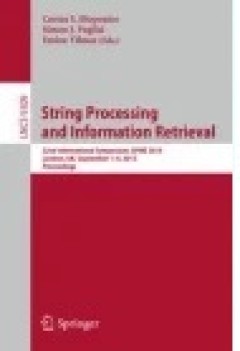
String Processing and Information Retrieval
This book constitutes the refereed proceedings of the 22nd International Symposium on String Processing and Information Retrieval, SPIRE 2015, held in London, UK, in September 2015. The 28 full and 6 short papers included in this volume were carefully reviewed and selected from 90 submissions. The papers cover research in all aspects of string processing, information retrieval, computational bi…
- Edition
- -
- ISBN/ISSN
- 978-3-319-23826-5
- Collation
- -
- Series Title
- -
- Call Number
- -

String Figures as Mathematics?
This book addresses the mathematical rationality contained in the making of string figures. It does so by using interdisciplinary methods borrowed from anthropology, mathematics, history and philosophy of mathematics. The practice of string figure-making has long been carried out in many societies, and particularly in those of oral tradition. It consists in applying a succession of operations t…
- Edition
- -
- ISBN/ISSN
- 978-3-319-11994-6
- Collation
- -
- Series Title
- -
- Call Number
- -

Stretchable Bioelectronics for Medical Devices and Systems
This book highlights recent advances in soft and stretchable biointegrated electronics. A renowned group of authors address key ideas in the materials, processes, mechanics, and devices of soft and stretchable electronics; the wearable electronics systems; and bioinspired and implantable biomedical electronics. Among the topics discussed are liquid metals, stretchable and flexible energy source…
- Edition
- -
- ISBN/ISSN
- 978-3-319-28694-5
- Collation
- -
- Series Title
- -
- Call Number
- -
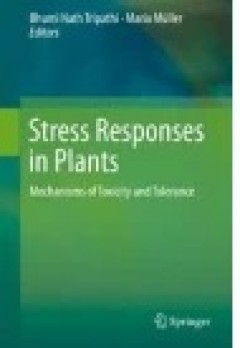
Stress Responses in Plants
This collection discusses the variety of specific molecular reactions by means of which plants respond to physiological and toxic stress conditions. It focuses on the characterization of the molecular mechanisms that underlie the induction of toxicity and the triggered responses and resistances. The nine chapters, all written by prominent researchers, examine heavy metal toxicity, aluminum toxi…
- Edition
- -
- ISBN/ISSN
- 978-3-319-13368-3
- Collation
- -
- Series Title
- -
- Call Number
- -
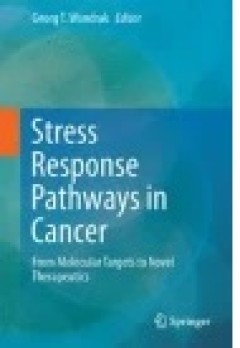
Stress Response Pathways in Cancer
It is now established that dysregulated cell stress response pathways play a critical role in tumorigenesis, and a refined mechanistic understanding of this phenomenon at the molecular level promises to open new avenues for targeted therapeutic strategies that may benefit cancer patients in the near future. Coauthored by recognized leaders in cancer research from five continents, this novel boo…
- Edition
- -
- ISBN/ISSN
- 978-94-017-9421-3
- Collation
- -
- Series Title
- -
- Call Number
- -
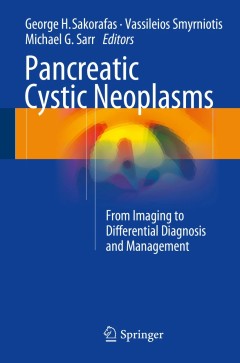
Pancreatic Cystic Neoplasms : From Imaging to Differential Diagnosis and Mana…
This book provides a thorough overview of the detection of PCNs using modern imaging techniques and a clear guide to the recognition of the different subtypes of PCN based on their radiologic and histopathologic features. This volume will serve as an excellent aid to the selection of optimal therapeutic strategies based on preoperative diagnosis. A further important feature is the emphasis plac…
- Edition
- -
- ISBN/ISSN
- 978-88-470-5708-1
- Collation
- XI, 74 halaman
- Series Title
- -
- Call Number
- 616.37 PAN

PanVascular Medicine
Vascular management and care has become a truly multidisciplinary enterprise as the number of specialists involved in the treatment of patients with vascular diseases has steadily increased. While in the past, treatments were delivered by individual specialists, in the twenty-first century a team approach is without doubt the most effective strategy. In order to promote professional excellence …
- Edition
- -
- ISBN/ISSN
- -
- Collation
- LXI, 5004 halaman
- Series Title
- -
- Call Number
- 616.13 PAN
 Computer Science, Information & General Works
Computer Science, Information & General Works  Philosophy & Psychology
Philosophy & Psychology  Religion
Religion  Social Sciences
Social Sciences  Language
Language  Pure Science
Pure Science  Applied Sciences
Applied Sciences  Art & Recreation
Art & Recreation  Literature
Literature  History & Geography
History & Geography